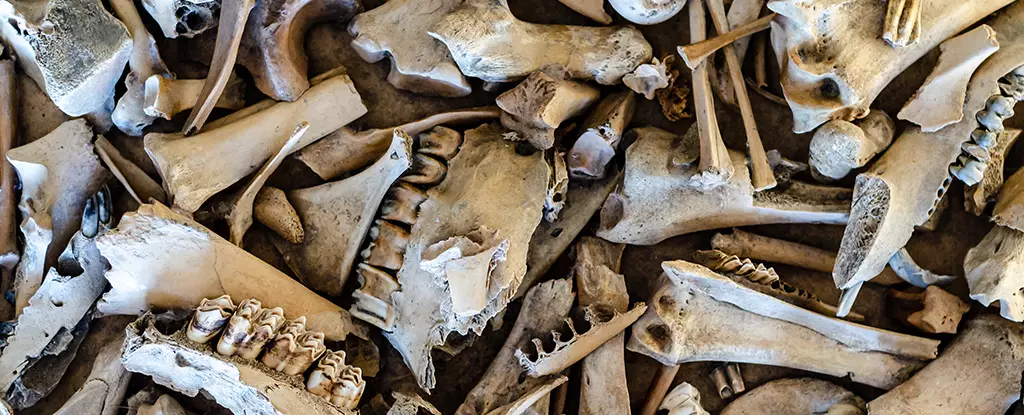For centuries, the narrative surrounding Neanderthals has oscillated between primitive, brute-force cavemen and misunderstood ancestors capable of rudimentary survival skills. However, recent archaeological findings dramatically rewrite this simplistic view, revealing a species capable of strategic planning, resource management, and technological sophistication. The discovery of what can be termed a “Neanderthal fat factory” in Germany exemplifies a technological burst that challenges outdated stereotypes. These aren’t just the primitive beings relegated to tools and hunting; they were methodically optimizing their environment, hinting at complex social behaviors and foresight comparable, perhaps, to early Homo sapiens.
The evidence from Neumark-Nord demonstrates that Neanderthals managed resources deliberately and efficiently. It wasn’t merely about scavenging or opportunism. Instead, they engaged in organized biomass processing, including large-scale bone-bone crushing activities to extract marrow and grease. This wasn’t an incidental byproduct of hunting but a carefully planned operation, indicative of a society capable of resource planning over extended periods. The implications are profound: these species possessed an understanding of nutritional value, domesticated their environment to maximize caloric intake, and possibly even engaged in some form of resource caching. Contrary to the popular image of Neanderthals as mindless hunters, this evidence portrays them as cognitive strategists with a nuanced understanding of their surroundings.
Reassessing Neanderthal Intelligence and Society
The discovery casts serious doubt upon the long-held assumptions of Neanderthal cognitive inferiority. For decades, the narrative was colored by notions of inferior brain sizes and primitive tool use. Yet, this “fat factory” insight suggests they possessed advanced planning capabilities—similar to early humans—indicating a form of cultural intelligence that previously was underappreciated. They understood the value of fat, not just for immediate sustenance, but as a critical nutritional reserve. They devised specific sites for rendering fats, which required organized transport and storage, pointing to social coordination and perhaps even social hierarchy.
This evidence adds to a growing body of research that paints Neanderthals as more dynamic than their stereotypical portrayal. Studies show them to be capable swimmers, adept brewers, and even artists—traits that challenge the simplistic perception of them as static, brutish beings. These attributes depict a species that, at minimum, had a complex social fabric, with care, planning, and technological mastery. The idea that Neanderthals were perceptive, strategic, and adaptable begins to look more credible, deepening the mystery of why they ultimately succumbed to Homo sapiens, whose success was perhaps rooted in these very cognitive advantages.
The Fate of Neanderthals: Could Their Sophistication Have Been Their Undoing?
While Neanderthals demonstrated remarkable adaptability and ingenuity, they ultimately vanished. This paradox incites a more nuanced inquiry: did their cognitive abilities, which should have given them survival advantages, somehow contribute to their downfall? One possibility is that their social structures or resource management strategies, while impressive, were not enough to compete with the more flexible, innovative approaches of Homo sapiens. We might see this as a form of evolutionary stagnation—a species so competent in certain domains that they failed to evolve quickly enough in response to changing environments or incoming competitors.
Furthermore, the intense focus on resource harvesting and efficient food extraction might have made Neanderthals vulnerable to environmental fluctuations—overexploiting local resources without enough capacity for diversification. Their ability to manage large animal populations and process bones indicates a species operating at a level of ecological craftsmanship; yet, this mastery could have limited their adaptability. Did this meticulous resource management turn into a form of ecological dependency or cultural rigidity? That remains an open question, but it is clear that their complex behaviors and strategic planning did not ultimately translate into survival.
In facing this reality, we must reassess the narrative that equates technological simplicity with primitiveness. The Neanderthal story is not one of failure and inferiority but one of a species that mastered aspects of environmental management well before the appearance of modern humans. Their impressive capabilities, once dismissed as primitive, now demand recognition and respect. However, society’s failure to understand their sophistication and the eventual dominance of Homo sapiens reflect a broader tendency: underestimating the depth of ancient intelligence, thus perpetuating myths that hinder a true appreciation of human evolutionary complexity.


Leave a Reply